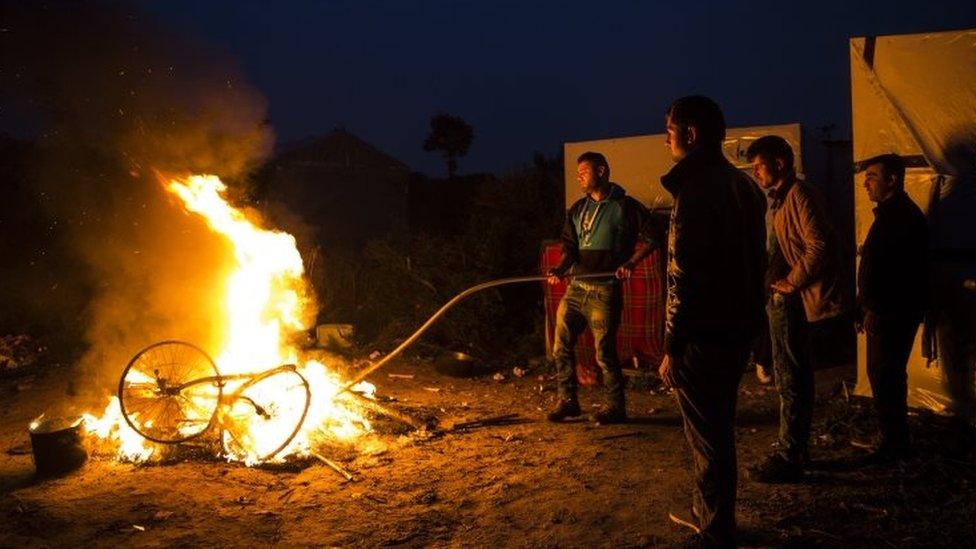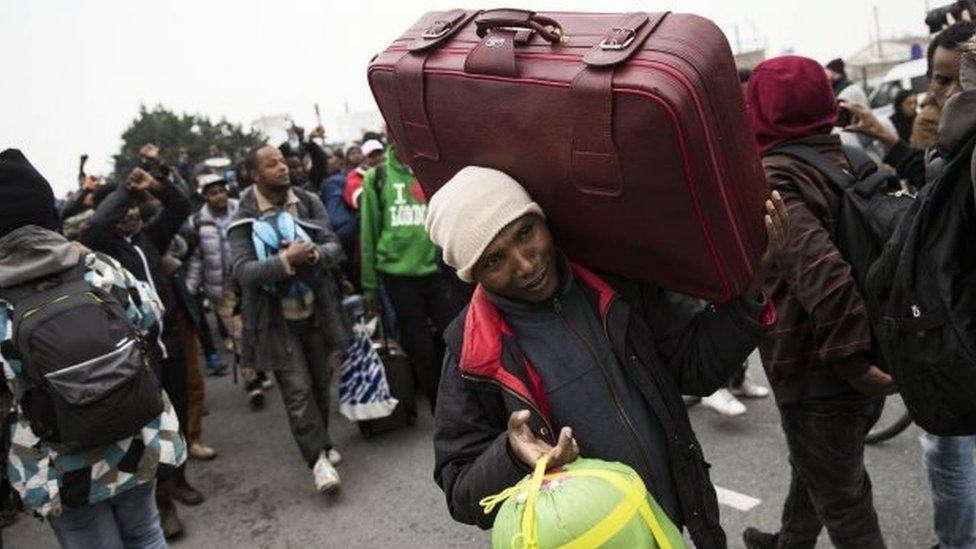Calais migrants: Day One of dismantling of the Jungle camp
- Published

By the evening the camp was alight with bonfires, as migrants threw out some of their belongings
Rue des Garennes in Calais, on the morning of the 24 October, is a street packed with more than 1,000 migrants, destined for various unknown French towns.
All uncertain to the life ahead, half seem desperate to leave, the others, desperate to stay.
Men from Ethiopia have been howling and physically shaking with fear at the thought of leaving the Jungle, and at the prospect of deportation.
"I will be killed in Ethiopia," Ali tells me, tears falling down his cheeks. "We are from the Amhara region, we are an oppressed people. We won't get asylum in France, we'll be sent back in a month when the French government rejects our asylum request."
Further down the line, I meet those desperate to leave. Ahmed from Afghanistan is taking selfies with friends who are dancing and singing "I want to break free-ee" by Queen.
"What a relief," says Ahmed, "This place was as bad as Afghanistan." This group had long given up risking their lives to get to the UK, and were taking the French classes offered by volunteers at the camp.
Day One has seen a gentle approach from the police. Clearance and demolition are set to start on Tuesday but have already been initiated by some of the migrants themselves.
The central strip of the camp known as "Main Street" is alight with fires by the time evening draws in, with migrants dismantling their own wooden shacks, and stoking the flames with the remains.
A single makeshift store selling Red Bull and cigarettes has stayed open, despite the demolition order.

Uncertain future: migrants are being resettled in different parts of France
Deeper inside the jungle, British volunteers from the charity Care for Calais walk tent to tent, urging people to leave quickly or face arrest.
The volunteers express guilt, say they feel they're betraying the refugees and migrants they came here to help.
By afternoon, unzipped entrances of tents blow in the wind. There's the odd pair of shoes lying around, and abandoned blankets amongst the debris left behind, that make clear how empty large parts of the camp have become.
On another road out of the camp, Rue de Gravelines, clandestine groups of migrants from Pakistan and Afghanistan are making alternative journeys, away from the watchful gaze of the riot police.
Several say they will head for Paris by train, potentially making for Germany or Belgium, determined to find a life away from France and, ultimately, away from their homelands.